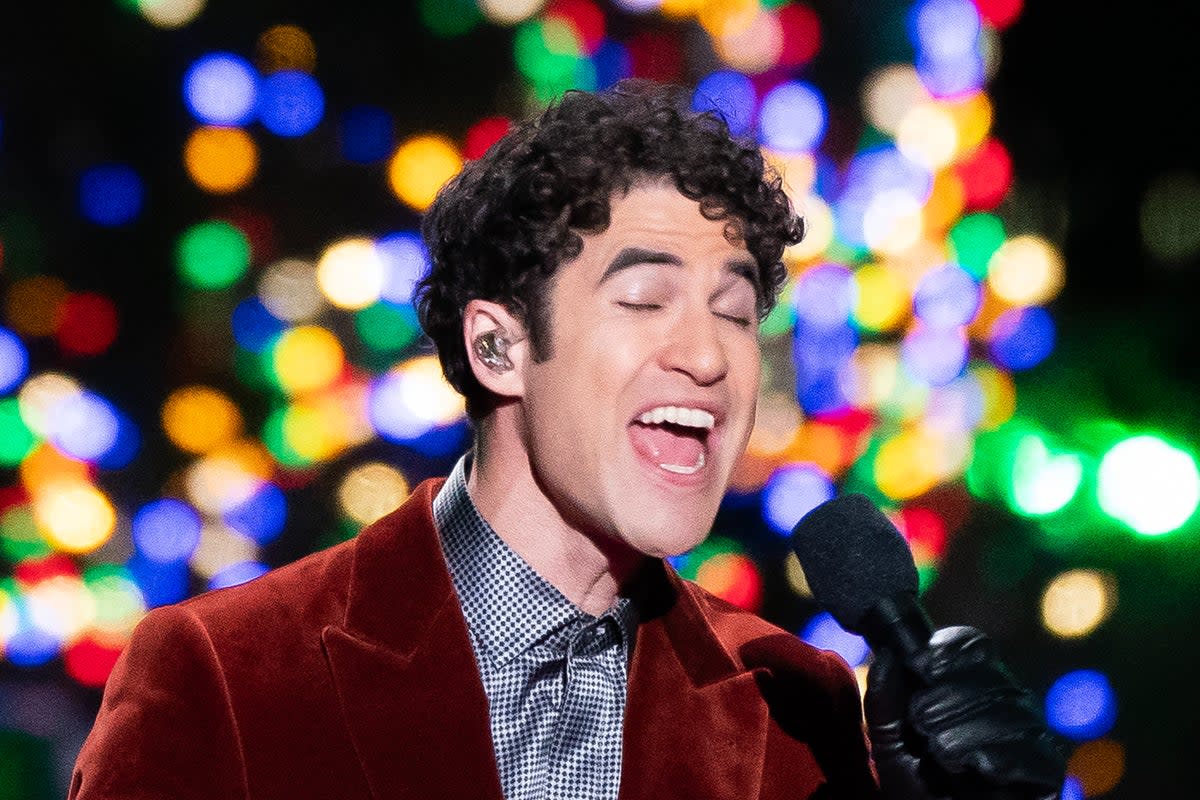Darren Criss claiming he’s ‘culturally queer’ isn’t just embarrassing, it’s ignorant

I have been so culturally queer my whole life,” said sexually straight Darren Criss, the 37-year-old former star of Glee. The cisgender actor and musician was speaking at the Chicago Comic and Entertainment Expo earlier this week when he made the remark, explaining: “I was gonna say, ‘Not because I’m trying to be cool...’ but I’m gonna erase that, because I am trying to be cool. The things in my life that I have tried to emulate, learn from and be inspired by are 100 per cent queer as f***.” But, contrary to Criss’s bizarre declaration, there is no such thing as “cultural queerness”. Not really. Me, I sometimes dress in black and have a vehement dislike of clowns. But I don’t go around telling people I’m culturally Batman.
To be fair to Criss, the core of what he’s saying is understandable enough. He has been a vocal and active champion of LGBT+ rights, claims to have spent a lot of time in queer social circles, and has played many queer characters: Blaine Anderson in Glee; Andrew Cunanan in The Assassination of Gianni Versace: American Crime Story; Hedwig in Hedwig and the Angry Inch. Whether this last trend in itself amounts to problematic cultural appropriation is another matter – at a point, it surely becomes undeniable that he is taking work that would have otherwise gone to a queer actor. But notwithstanding this debate, it’s reasonable to describe Criss as a supporter of the LGBT+ community – what would usually be called an “ally”. But Criss didn’t call himself an “ally”. He called himself “culturally queer”. And the difference is significant.
On some level it’s a heartening sign, when straight people are actively trying to paint themselves as queer, or queer-adjacent. It’s something we have seen when it comes to race: white people attempting to co-opt the cache of other cultures. There are countless instances of white people claiming to be “culturally Black”, for instance; last January, Gwen Stefani was chastised for remarking: “I’m Japanese and I didn’t know it.” There have always been queer people at the cutting edge of culture, of course, but the rise of phrases like “culturally queer” demonstrates just how acceptable queerness has become within straight circles, how being openly and visibly queer is no longer seen as something someone would or should cover up. A straight man of Criss’s ilk 50 years ago would not be making this same faux pas.
But this modern willingness to clutch at the cultural cachet of queerness also speaks to an ignorance and insensitivity about the persecution that queer people still suffer to this day. Homophobic and transphobic hate crimes have increased significantly in recent years. Trans rights are under constant and mendacious attack in nearly all areas of British media. This isn’t to do with “culture”. People aren’t getting attacked in the street because they’ve bought a Tegan and Sara record. Queerness is about who you are and who you desire. And that’s the long and short of it.
More than this, Criss’s comments also speak to a complete falsehood about modern queerness: the idea that there is any one singular “queer culture”. The queer community is not a monoculture. It never has been, of course – such a big slice of the population is inevitably going to contain a multitude of tastes, aesthetics and behaviours. But historically, there was more of a unified “gay culture”; it was a useful and necessary construct, a way of allowing queer people to find and connect with other queer people at a time when being openly or visibly queer was dangerous or simply not done. You could argue that this erosion of a connective queer culture is the insidious result of assimilation into straight society – or perhaps just a reflection of our wider socio-cultural evolution, from mass market consumption into the niche, branching personalisation of the internet era.
Ultimately, the very idea of “cultural queerness” as being meaningfully distinct or separable from actual lived queerness suggests a decidedly un-queer understanding of the world, a binary notion of “straight things” and “queer things” that are separate and removable from sexuality itself. It’s fine to be reluctant to use the word “ally”: it seems a little performative and very straight, in the drabbest sense. But it’s what straight people should aim to be. If Criss doesn’t start minding his language, even “ally” might start to seem a little rich.
